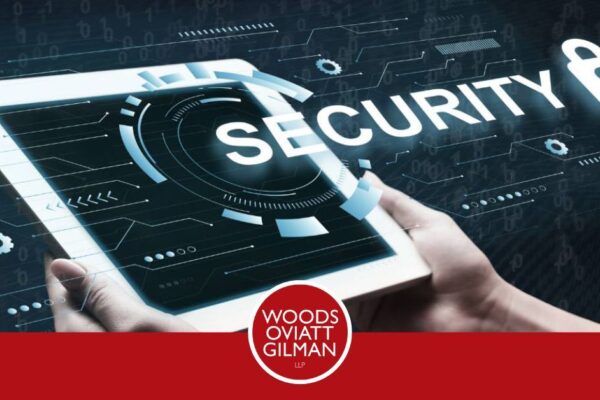3-20-20 Client Alert - Amendment to Governor Cuomo’s Executive Order - Non-Essential Businesses Must Reduce In-person Workforce by 75%
WOODS OVIATT GILMAN LLP CORONAVIRUS (COVID-19) CLIENT ALERT
Amendment to Governor Cuomo’s Executive Order - Non-Essential Businesses Must Reduce In-person Workforce by 75%
Governor Cuomo has issued an amendment to his Executive Order requiring non-essential businesses and not-for-profit entities to reduce their in-person workforce by 75% becomes, which now makes the Order effective at 8 p.m. on March 21 instead of March 20. Essential businesses and entities are not subject to this restriction. The Empire State Development Corporation has issued guidance for determining whether a business or entity is essential for purposes of the Executive Order. The guidance is located at https://esd.ny.gov/guidance-executive-order-2026.
The guidance defines whether a business is essential by providing specific functions and operations within each category set forth in the Executive Order. Notably, the guidance also states that for businesses and entities that provide both essential and non-essential services, supplies or support, only those lines and/or business operations that are necessary to support the essential services, supplies, or support are exempt from the restrictions.
The following functions and operations are considered essential:
1. Essential health care operations
- research and laboratory services
- hospitals
- walk-in-care health facilities
- veterinary and animal health services
- elder care
- medical wholesale and distribution
- home health care workers or aides
- doctor and dentist offices
- nursing homes, or residential health care facilities or congregate care facilities
- medical supplies and equipment providers
2. Essential infrastructure
- utilities including power generation, fuel supply and transmission
- public water and wastewater
- telecommunications and data centers
- airports/airlines
- transportation infrastructure such as bus, rail, or for-hire vehicles, garages
3. Essential manufacturing
- food processing, including all foods and beverages
- chemicals
- medical equipment/instruments
- pharmaceuticals
- safety and sanitary products
- telecommunications
- microelectronics/semi-conductor
- agriculture/farms
- paper products
4. Essential retail
- grocery stores including all food and beverage stores
- pharmacies
- convenience stores
- farmer’s markets
- gas stations
- restaurants/bars (but only for take-out/delivery)
- hardware and building material stores
5. Essential services
- trash and recycling collection, processing and disposal
- mail and shipping services
- laundromats/dry cleaning
- building cleaning and maintenance
- child care services
- auto repair
- warehouse/distribution and fulfillment
- funeral homes, crematoriums and cemeteries
- storage for essential businesses
- animal shelters or animal care or management
6. News media
7. Financial Institutions
- banks
- insurance
- payroll
- accounting
8. Providers of basic necessities to economically disadvantaged populations
- homeless shelters and congregate care facilities
- food banks
- human services providers whose function includes the direct care of patients in state-licensed or funded voluntary programs; the care, protection, custody and oversight of individuals both in the community and in state-licensed residential facilities; those operating community shelters and other critical human services agencies providing direct care or support
9. Construction
- skilled trades such as electricians, plumbers
- other related construction firms and professionals for essential infrastructure or for emergency repair and safety purposes
10. Defense
- defense and natural security-related operations supporting the U.S. Government or a contractor to the US government
11. Essential services necessary to maintain the safety, sanitation and essential operations of residences or other essential businesses
- law enforcement
- fire prevention and response
- building code enforcement
- security
- emergency management and response
- building cleaners or janitors
- general maintenance whether employed by the entity directly or a vendor
- automotive repair
- disinfection
- doormen
12. Vendors that provide essential services or products, including logistics and technology support, child care and services needed to ensure the continuing operation of government agencies and provide for the health, safety and welfare of the public
- logistics
- technology support
- child care programs and services
- government owned or leased buildings
- essential government services
Businesses and entities not specifically covered by the guidance may request designation as an essential business by submitting a request to the Empire State Development Corporation. Applications may be submitted by email to covid19designations@esd.ny.gov. An application form is found at https://esd.ny.gov/sites/default/files/Request%20for%20Designation%20Form_0.pdf. If you need assistance in submitting an application, you are welcome to contact us.
Please contact your Woods Oviatt attorney or the following attorneys regarding COVID-19 related issues:
COVID-19 Multi-resource Crisis Group Co-Leaders


